Gil Yisraelov: "When the Mezuzah Was Opened, I Turned Pale, I Was in Shock"
This upcoming Saturday evening, 'Between Sacred and Secular,' a new program by Rabbi Eliyahu Asos and Gil Yisraelov, will premiere on the Hidabroot channel. In an interview ahead of the show's debut, Yisraelov shares how his grandfather, who was captured by the Egyptians, influenced him; the hurt from songwriters who refused to give him songs; and the special outreach efforts he participated in.
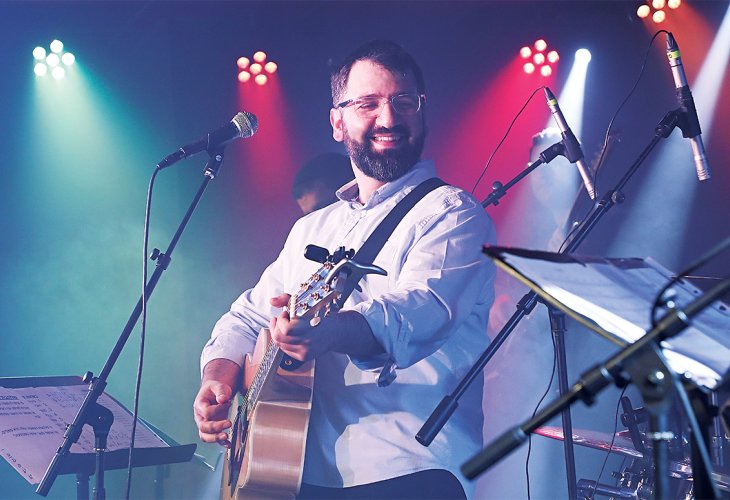 Gil Yisraelov (Photo: PR)
Gil Yisraelov (Photo: PR)"In many ways, I owe my career to my grandfather, and I think about him a lot," says Gil Yisraelov, 37, married and a father of five, living in Azor, and serving as a singer, creator, and radio host at the start of our conversation. "Like many religious Mizrahi singers, I began my musical career in the synagogue. I was born in southern Tel Aviv on the Shapira-Florentin border, and we prayed in the synagogue that my grandfather established, and I started reading from the Torah at a very young age. We are a family of Torah readers for generations, and I read my first 'haftarah' at age seven. My father was the first to see my potential, took me to children's choirs, and that's where it all started.
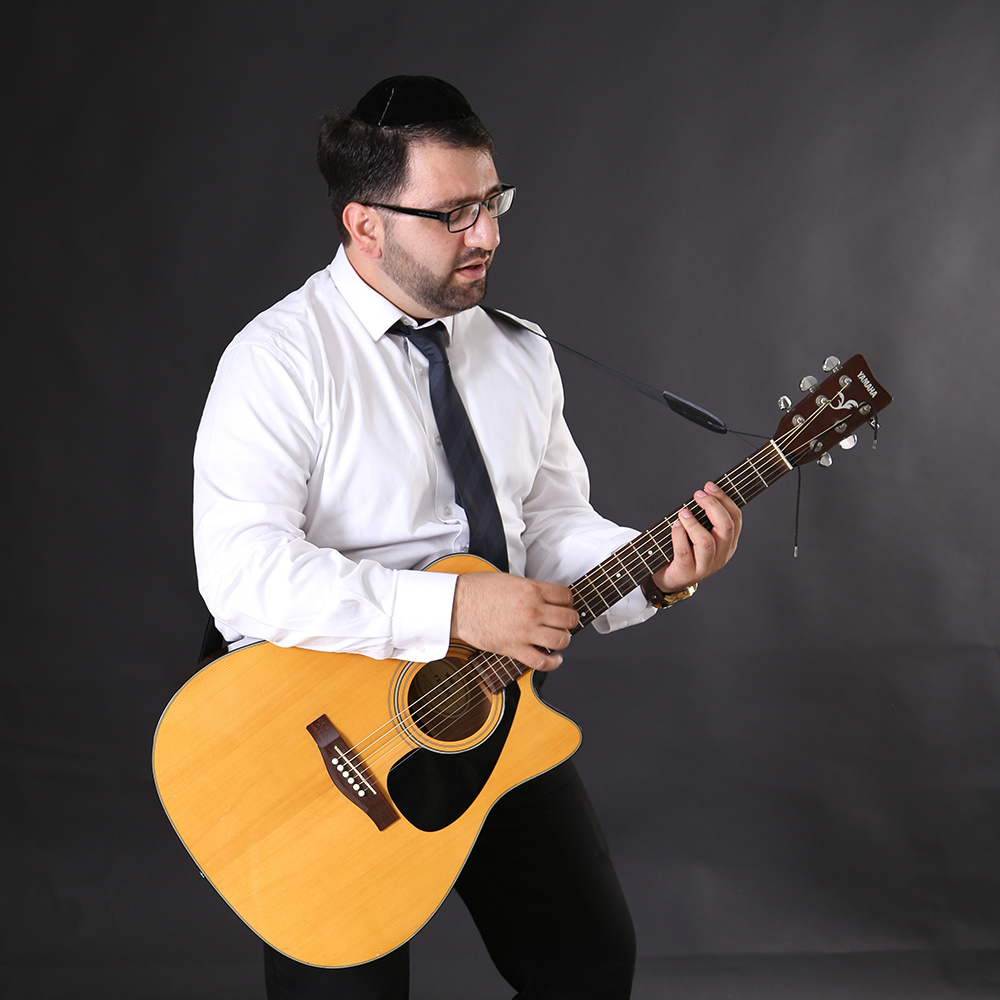 (Photo: PR)
(Photo: PR)"It was especially important to my grandfather that I realize this talent. Grandpa was a fighter in the 'Haganah', and during the War of Independence, as a soldier in the Givati Brigade, he was captured by the Egyptians and was held captive for over two years. For about six months, they thought he was dead, and then they found out he was alive and a POW. Grandpa didn’t talk much about that time, but once a year, he would take us to the place where he was captured, near the 'Ad Halom' junction. He told my father in detail what happened there, and thank God, he wrote it down. He underwent very severe torture there. My father once told me that since grandpa was released, not a month went by without him being hospitalized. His digestive system was deeply affected. They gave the prisoners food that would harm them for the rest of their lives.
"When grandpa was taken captive, he vowed that if he came out alive, the small tallit (tzitzit) would never leave his body, and he would build a synagogue. After returning home, grandpa became stronger in faith, and a few years later he indeed built a synagogue. He was very connected to the synagogue, so seeing me read from the Torah was a great delight for him. Grandpa wasn’t a wealthy person at all, but from his sheer satisfaction with the matter, he would give me 50 shekels every once in a while. It was a significant amount for him. Once I asked my father why grandpa lived in such poverty and why the state didn’t help him more economically after what he went through. Dad said they were willing to help, but grandpa said, 'From the state, you don't take, only give.'"
Opera, Maqam, and Solfege
"When I was 11," continues Yisraelov, "my father took me to learn cantorial music professionally. I studied for three years and immersed myself in the theory of music – notes, solfege, maqam, scales. Later, I also studied opera for several years. These shaped and molded me. In total, I studied music for about 11 years. As a child, I particularly learned and loved the traditional songs, but also foreign bands. This variety shaped who I am today."
How much influence does your grandfather have on who you are today?
"A very large influence. I was the cantor for my bar mitzvah Shabbat, and it was grandpa's last event in life. He was very proud of me. To this day, I carry him with me, thinking of him. In both music and Torah study. I was in children's and youth choirs until age 16, then I entered Yeshivat 'Shaarei Zion' in Bnei Brak, and naturally, my musical activities diminished significantly. I wanted to invest in Torah. I studied from seven in the morning until ten at night, and I was the regular cantor at the yeshiva.
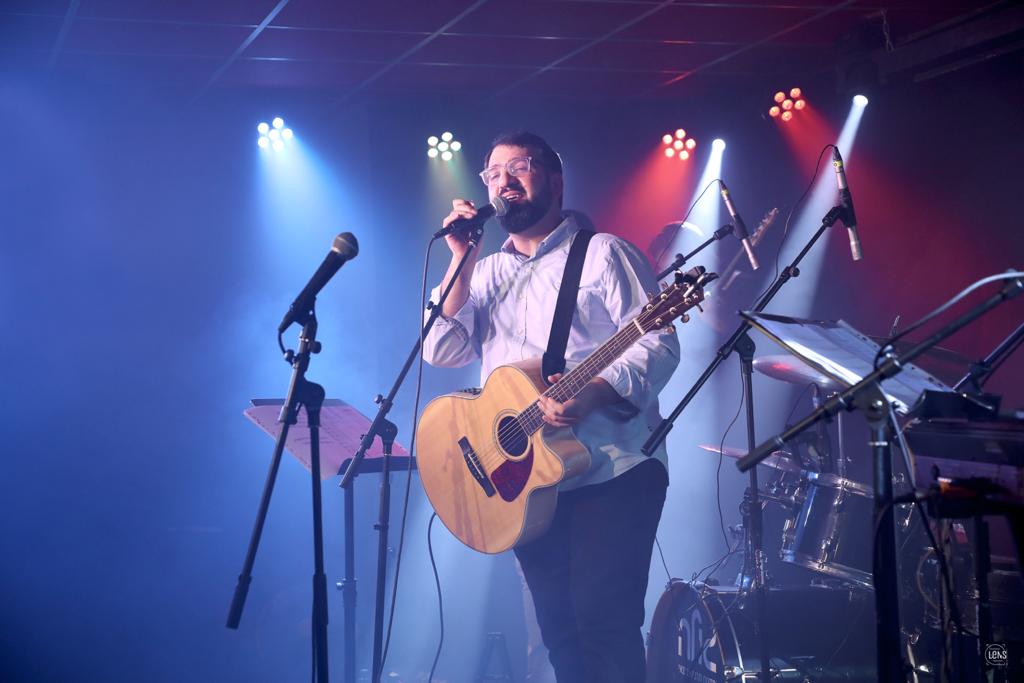 (Photo: Liora Amar)
(Photo: Liora Amar)"I got married at 22 and went on to study at the 'Kiruv' Kollel in Tel Aviv for ten years. We studied rabbinic studies and in the evenings would visit secular families, talk to them, and give lessons. Each student had a contact list of 15-20 families, and we maintained close relations with them. It took us time to get there; it wasn’t easy. We took courses on breaking the ice. We would knock on the doors of strangers and tell them we wanted to learn Torah with them. Everything was very organized. There was an organizer at the yeshiva who managed everything and distributed us by buildings.
"The first thing we told anyone who opened the door was that we didn’t come to ask for money, and that was already a good start. Over the years, I knocked on the doors of hundreds of families. Usually, young couples. We would initially talk about what they wanted to talk about, then what they wanted to study together. The return to religion movement there was incredible. The main idea was to be friends with them and from there to bring them closer. Our program’s head said to us: 'Don’t return them to religion; just study Torah with them. The light will bring them back.' Often, we used Hidabroot's various platforms, which greatly helped in bringing people closer."
Do you recall a particularly strong personal experience from those years?
"I had a lot of experience, so they would take me to the difficult cases, especially to people who were refusing. There was a family very distant from Judaism, but we really wanted them. And I, when I'm told 'no,' I lose it. One day as part of persuasion attempts, I saw their son with a plastic brace on his neck, like those worn after an accident. I asked the father about it, and he said the child woke up with neck pain, and the doctors didn’t know what was wrong.
"I asked if they had checked the mezuzot lately; he said no, so I suggested we check. I took the mezuzah from the child’s room to one of our fellows who was also a scribe, and he said it was invalid. 'In the letter Alef of the word there is a break between the head and the body,' those were his exact words. I turned pale. I was in total shock. I told him that’s exactly what happened to the child – a break between the head and the body. He corrected the mezuzah, and I returned it to the family. A week later, I came to visit again, and the child’s father said everything disappeared. The child was completely healed. After that, I came to study with them a lot."
According to Yisraelov, after ten years of study at the Kollel, life’s burdens made it hard to stay in this framework, so he decided to move on to the next destination. "There were several factors because of which I realized I needed to move on, but in a sense, I am still part of the Kollel. Every morning, for example, I start with several study partners. We lived in Tel Aviv then, and I knew it would be hard for us to progress there. Providentially, one day I got a call from a synagogue representative in Azor, who said they were looking for a cantor for the community and had heard about me. I told my wife it was worth checking out, and we went for it.
"Initially, we lived in a rental, but we quickly fit in thanks to the wonderful people living there, whom I love with all my heart and soul, and we genuinely bought a home. I’m not the town or synagogue rabbi, there is a rabbi more worthy than me, but I give Torah classes and do what I can. Music has always been in my life, but when I left yeshiva, I naturally returned to it more seriously. I approached producer Yoni Eliav, and together we released eight songs. Two years later, Yishai Lapidot established the band 'Jewish Song Council,' Yoni was its musical director, so he brought me in and I learned a lot from Yishai. How to appear on stage, sing, play the game, manage with musicians, and more. Those years we burned up the stages, performing a lot both in Israel and abroad."
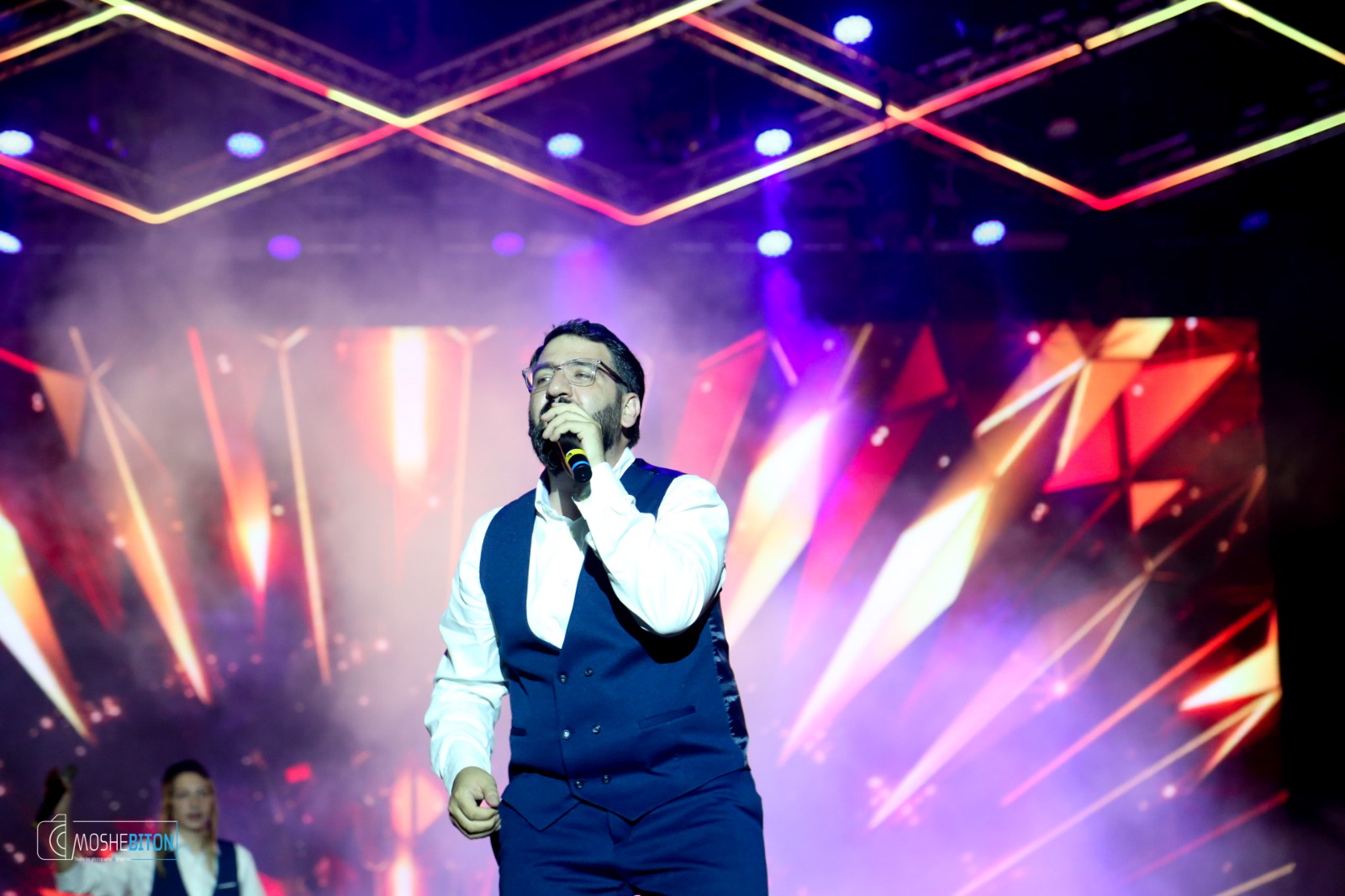 (Photo: Moshe Biton)
(Photo: Moshe Biton)
Just Yiddish
"Thanks to the performances with Yishai," says Yisraelov, "I ended up in all sorts of interesting things. In one production, I met Yaakov Rotblat, an important producer in Hasidic music, and he told me: 'I am mostly involved in Hasidic productions, but if I have Israeli-style productions, I'll call you.' He indeed called me once every month or two, but one day he got stuck without a singer for an American Hasidic production. He called and said he needed someone for the production, and asked if I could sing in Yiddish. I had no clue about it, but I told him, 'Sure'. I wanted to get into that world and believed it would succeed.
"It's amazing to think about it, but thank God, I work in all kinds of music. Also, a cantor in a synagogue, also releasing my own songs, also involved in hardcore Hasidic productions and other things. I am a Sephardic guy who studied in a high school yeshiva in Tel Aviv, who finds himself singing in Hasidic albums. In one album, I sang with Hasidim who don’t know Hebrew, only Yiddish, and during the recordings, we talked about Sephardim and Ashkenazim and the musical arranger of the album said to me: 'I am a very racist Ashkenazi'. We continued talking, and at some point, he asked me how I, a Sephardic guy like me, sings in such Ashkenazi pronunciation, so I answered him: 'In a previous life, I was a racist Ashkenazi'. He already got the jab."
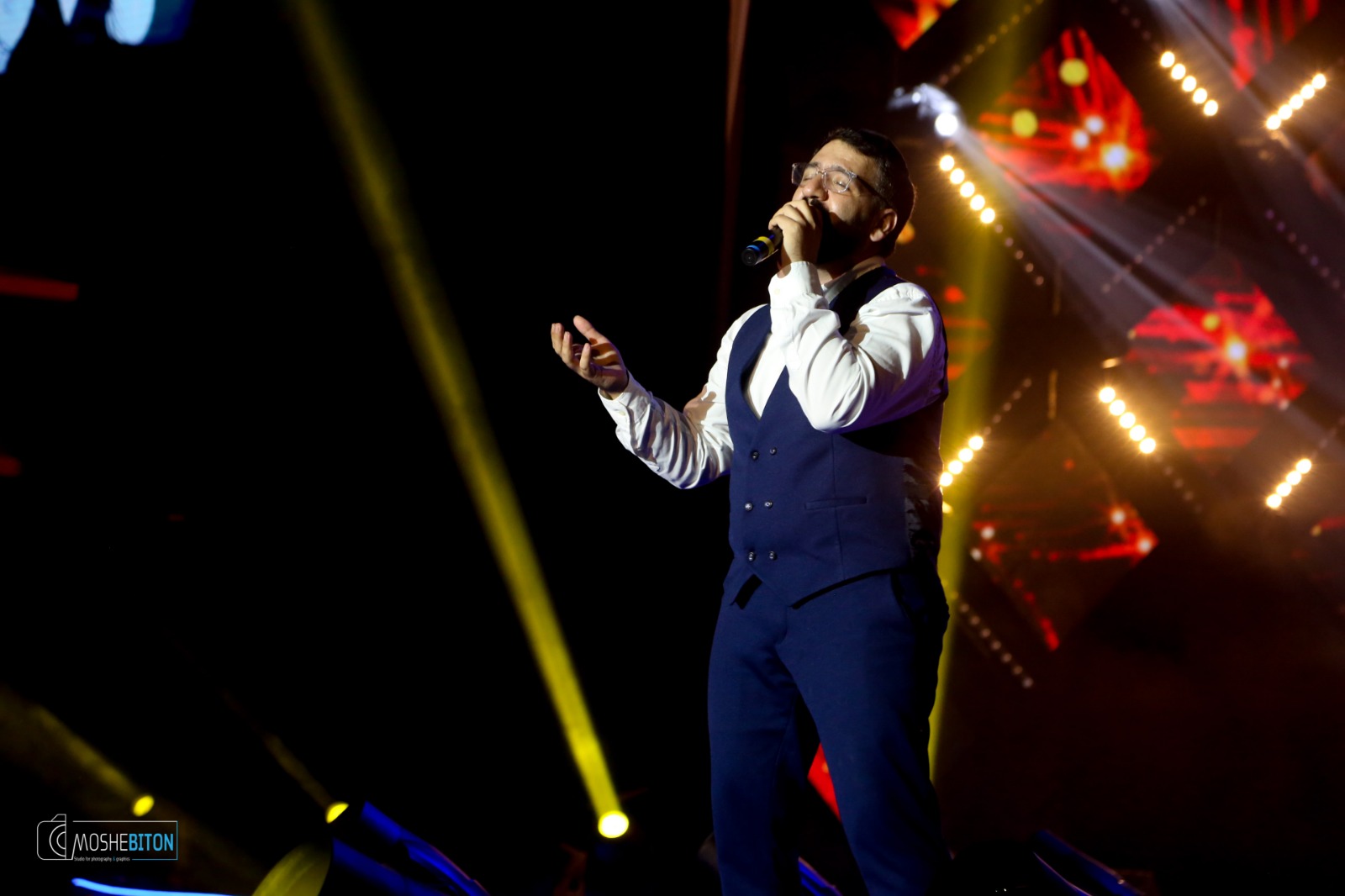 (Photo: Moshe Biton)
(Photo: Moshe Biton)When did you start releasing your own songs and how did it feel? Surely it's a completely different world.
"After several years in other choirs, I also wanted to release my own materials. When you decide to go for a musical career, you search for many materials because the writing and composition are rather fresh. There were creators who gave me songs, but most did not, as they wanted to give them to famous artists for better success. I remember being very hurt by this. It was a very difficult experience for me. However, this hurt motivated me. It made me feel that I needed to strive and succeed so they would come to me and ask me to sing their songs. Because of this, I began to delve deeper into the world of writing and composing. At first, independently, and then I learned properly. Today, I write and compose most of my songs by myself.
"I released my singles with my producer, Yuval Ben David, and in one production heard by Yisrael Shlomo Azulai, manager of Kol Chai Music, he approached me and said they were looking for a host for their daily afternoon show. He brought me to CEO Avi Rosen, they did a pilot show with me, and decided to go for it. I had no idea about radio, but they taught me everything I needed to know. For almost four years, I have been presenting the show between two and four.
"One thing that radio broadcasting did for me is that thanks to the show, I understood what people want to hear. As someone who writes songs and works in studios endlessly, you don’t know what the audience really wants and needs. In the studio, you talk to professionals and are a bit detached from the public. Suddenly you get on the radio and understand much more. Recently, another happy thing happened to me, which is the new program on the Hidabroot channel.
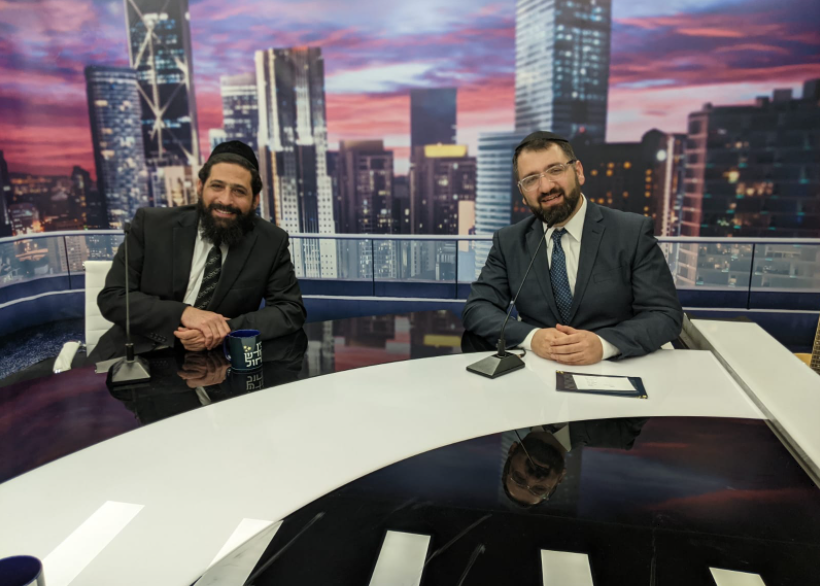
"The program is a collaboration between me and Rabbi Eliyahu Asos. We talk about current events in the light of Judaism, host a different artist every week and have a deep conversation with them, and also have several interesting segments in the show. One of them is 'The Beginner’s Guide' where we talk about basic things in Judaism – but things that are not often talked about. Another strong segment is the 'Liturgical Corner' with cantor Moshe Duek, where he tells each week about a different liturgical poem and then performs it. With God’s help, we’re going on air this week and can’t wait any longer. See you next Saturday night at 8 PM."

